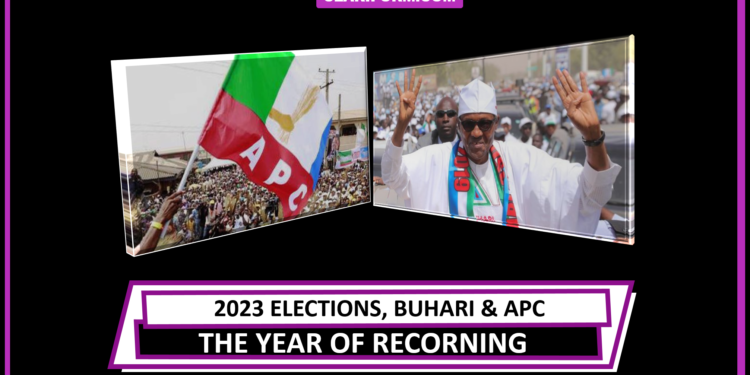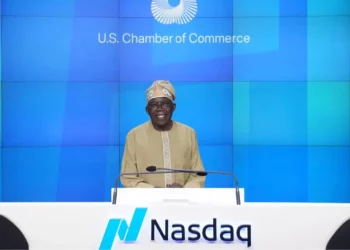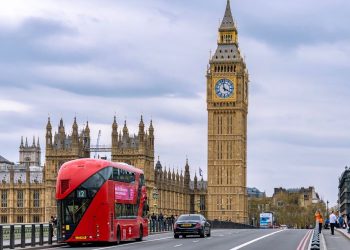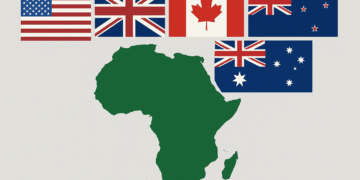The Nigerian political climate is certainly smoggy. The sky is so cloudy that you cannot see with clarity what is up and round there. Yet 2023 is a pregnancy that we know the due date. Whether the delivery will be an election that will usher in a new government or an eventual conflagration of the nation from the internal widespread insecurity is yet to be seen.
In 2015, the then president Nigerian President Goodluck Jonathan conceded defeat and handed over to the current President Mohammadu Buhari. At the time, President Jonathan was hailed by Nigerians and global watchers as a fine gentleman who have set a new record in the Nigerian electoral map. There were those who thought that he was systematically rigged out under the very watch of Prof. Attahiru Jega, the then head of the Nigerian Independent Electoral Commission (INEC).
There were also those who were convinced that President Jonathan genuinely lost the election which was as a result of a well-funded campaign of calumny by those who wanted him and the PDP out of power at all cost. For the holders of this school of thought, it was believed that President Barrack Hussein Obama, the then president of the United States of America led the foreign coordination of President Jonathan`s electoral loss to the current President Buhari.
Consequently, for the very first time we witnessed a peaceful handover of power by a sitting Nigerian president to an opponent from an opposition party through the ballot box. This was in fact the second experience in the whole of the African continent, second only to Ghana. So, even in loss, the then President Jonathan bowed out with great honour. He was described by both local and the Western media as a reformist who has steered Nigeria on the right path and into a new democratic era.
But barely few years down the line, things began to unravel. The current regime of President Buhari stands accused of overseeing the dismantling of democratic culture and structures in Nigeria. Legislations targeted at further strengthening the Nigerian democratic and electoral system has suffered under the watch of the current regime, unlike what the country witnessed under his predecessor.
There is also the accusation against President Buhari of a campaign of ethnic cleansing virtually by all Nigerian tribes except only his own tribe – the Fulani ethnic minority tribe. This according to his accusers puts the country on the brink of a civil war, which many fear may happen and which many fear may happen and would impact or totally encumber the 2023 elections.
How did we get here?
Nigeria is a deeply fragmented country, made up of more than 300 ethnic groups, many of whom have traditionally felt excluded from political power. The country has long suffered multiple ethnic strife and religion induced segregation.
Despite accounting for just about 3-6 percent of Nigeria`s population, the Fulani ethnic group have dominated the Nigerian political space for decades, after the brutal slaughter of Major General Aguiyi Ironsi in a bloody military coup organized and led by a group of mutinous Northern Nigerian officers.
President Buhari who is a core Fulani came into government on a strong claim to his ability to create jobs, root out corruption, end Boko Haram and terrorism in Nigeria. He has now been in power for over six years, and there is hardly any doubt that his achievement in these three pillars of his campaign promises within this period, is more of liability than an asset for his party, the All Progressive Congress (APC).
Buhari arrived Aso Rock Villa as a messiah of sort for Nigeria. Many from both the Northern and Southern divides believed so much in him and his ability to steady the ship for Nigeria. The expectation was very high. Then came Buhari`s political appointments and policies which very many interpreted as nepotistic and case book definition of tribalism. This left many in the southern region feeling marginalized and used.
Most of Buhari`s reforms have done more to further strengthen the hold of his Fulani tribe to power at the expense of national unity and cohesion. In ushering in these reforms, and others, the president at the earlier stage of his government unleashed deep-rooted ethnic tensions simmering beneath the surface. Soon after, inter-ethnic resentments began to boil over. Till date there has been no change of course in this direction by the president, and the result is the general insecurity that have pervaded the whole country.
Worsening insecurity and humanitarian crisis.
The president`s style of leadership and approach to national issues has since escalated bad situations into a full blown and wide spread insecurity and humanitarian crisis in every facet of the country. Many analysts say that Buhari has overseen a campaign of ethnic cleansing, where the Fulani herdsmen backed by the Nigerian security personnel including troops of the Nigerian army have brutalized and murdered many innocent and unarmed women and children as well Nigerian farmers across the country.
Also, the Igbo communities in the South Eastern Nigeria; reports of massacres, rapes, and pillaging are well-substantiated. It said that “Every day, the front pages of Nigeria’s newspapers are filled with reports of abductions, kidnappings for ransom, political assassinations, etc. Rather than design and promulgate policies to arrest the deterioration, President Buhari and his aides have been busy searching for people and groups to blame. It is clear to any objective observer that the president has lost control of the country.”
What does all this mean for the 2023 elections?
It’s against this backdrop that Nigerians may head to the polls sometime in early 2023 for a national election to choose a new government and National Assembly members. Should the election actually hold, it shall be certainly a referendum on the APC and Buhari`s regime. But will the vote be free and fair, and will the outcome actually reflect the will of the people? Most analysts say the answer is a resounding “no” on both fronts.
As Buharis continues with his leadership style and what many have seen as his intentional repression of many other Nigerian ethnic groups for the sole benefit of his Fulani kinsmen, there is no doubt that the rampant violence and secessionist agitation will also persists. This threatens not only the stability of Nigeria, but also of the entire West African hemisphere.
How the buharists and APC apologist will approach the Nigerian voters on the back of President Buhari`s achievements in office will be an interesting part of the 2023 election campaign train. There is already a popular opinion that in a truly democratic setting where there is a truly independent electoral umpire like Nigeria had in 2015 under the former President Jonathan, the APC will have a hard time remaining in power.
This is on the backdrop of the fact that APC`s six years under Buhari will be a political liability in launching a new political campaign by the party or any Buhari`s anointed candidate for the 2023 national elections unless only in the core Fulani domains.












